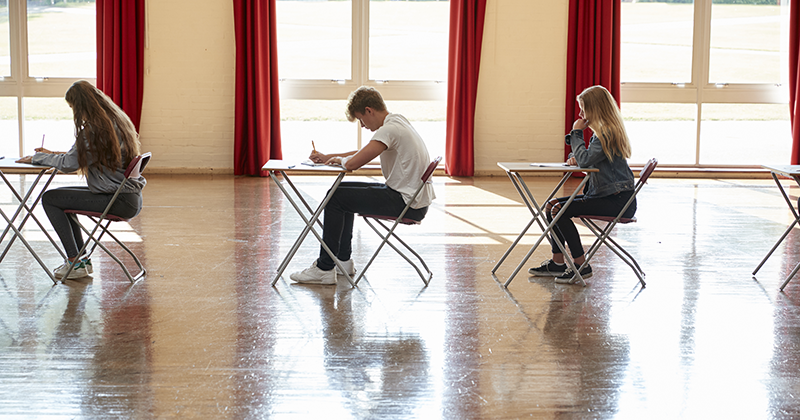The government must introduce a statutory ban on mobile phones in schools if its current crackdown on the devices proves ineffective, MPs have said.
They made the recommendation in a new education committee report published this morning following an inquiry into the impact of screen time on children’s outcomes and wellbeing.
Former schools minister Robin Walker, who chairs the committee, warned that “without urgent action, more children will be put in harm’s way”.
Here are the report’s key findings…
1. Minimise screen time on phones
The committee heard “strong evidence that smartphones and computers disrupt pupils’ learning both at home and in the classroom”.
It can take “up to 20 minutes” for youngsters to refocus after “browsing the internet or noticing a notification” on their mobile.
The harms of screen time and social media use “significantly outweigh the benefits for young children, whereas limited use of screens and genuinely educational uses of digital technology can have benefits for older children”, the report said.
“Government needs to do more across departments to protect them from addiction, online harms and the mental health impacts of extensive use of devices.”
2. ‘Ban’ on phones could go further
The committee welcomed the government’s non-statutory guidance, released in February, which stated schools should “develop a mobile phone policy that prohibits the use of mobile phones and other smart technology” throughout the day.
However, it heard mixed evidence on how well this will be taken up. It recommended formal monitoring and evaluation to be undertaken, with the results published and shared with leaders.
If they show the guidance has been “ineffective in 12 months, the government must move swiftly to introduce a statutory ban”.
“[It] must also ensure parents are not prevented from being able to contact their children during their commute to school. The [current] guidance should be changed by July to prevent schools from insisting mobile phones are left at home.”
Committee members also believe the next government should work with Ofcom to consult on additional measures around mobiles. These include a total ban on smartphones for under-16s.
3. ‘Kitemarking scheme’ for education apps
The committee said many schools “encourage the use of educational apps to support learning and engage pupils” in subjects like maths, despite there being a “poor evidence base” on which ones are best.
Official guidance should be produced “within a year” for parents and schools on the efficacy of such websites and apps.
Along with this, MPs want ministers to support a “kitemarking scheme” for these online resources in the first 12 months of the new Parliament.
They should also encourage tech firms “to introduce standards for the use of educational labels and to remove apps which do not offer educational benefit”.
4. Improve digital literacy curriculum
The government has been told to “embed additional core content on online safety” into ICT training and the early career framework for all teachers.
The committee said PSHE, which covers digital literacy among other things, cannot be adequately evaluated solely within Ofsted’s current personal development metric.
Instead, the subject should be checked using thematic reviews, like other core curriculum topics.
5. Concerns over ‘data and privacy’
The UK’s edtech sector is the largest in Europe, according to the study. Despite acknowledging it can provide “some benefits”, the committee is “concerned about the implications of edtech and Al on children’s data and privacy”.
The next government should “produce a risk assessment on the use of edtech and Al in schools as soon as possible, and particularly on the extent to which it poses a risk to the security of children’s data.
“The safety and reliability of edtech should also be assessed by Ofcom both [as] it is introduced to schools, and periodically after it is brought into schools.”
Schools have also been told to regularly update and renew laptops and tablets “to keep them secure for longer”, as “edtech has more malware than all other sectors combined”.
In England, the digital age of consent, which is when a youngster can give websites the go-ahead to process their data, is 13. The report added the next government should consult on “whether it should be raised” and “recommend 16 as a more appropriate” threshold.
6. Guidance for parents
The committee urged government to outline how parents can “best manage and understand the impact of screen time” on their children.
It wants the advice to state that youngsters “should not be able to access screens after they have gone to bed and should incorporate physical activity into their day”.
The guidance “should also focus on the ways in which parents can monitor use of devices, the uses of parental controls and how to deal with problematic screen use including when to seek help”.











